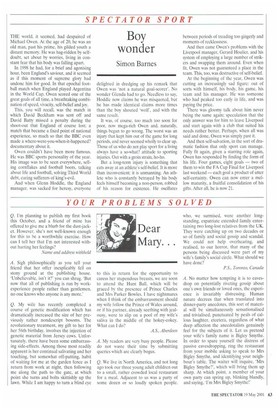Q. We live in North America, and not long ago
took our three young adult children out to a small, rather crowded local restaurant for a meal. Adjacent to us was a party of some dozen or so loudly spoken people,
who, we surmised, were another longstanding, expatriate extended family entertaining two long-lost relatives from the UK. They were catching up on two decades or so of family and social gossip and scandal. We could not help overhearing, and realised, to our horror, that many of the persons being discussed were part of my wife's family's social circle. What should we have done?
P.S., Toronto, Canada A. No matter how tempting it is to eavesdrop on potentially riveting gossip about one's own friends or loved ones, the experience is invariably distressing. Human nature decrees that when translated into dinner-party anecdotes, this sort of material will be simultaneously sensationalised and trivialised, punctuated by peals of callous laughter, etcetera, regardless of what deep affection the anecdotalists genuinely feel for the subjects of it. Let us pretend your wife's family name is Bigley Smythe. In order to spare yourself the distress of passive eavesdropping, ring the restaurant from your mobile asking to speak to Mrs Bigley Smythe, and identifying your neighbour's table. The waiter will inquire, 'Mrs Bigley Smythe?', which will bring them up sharp. At which point, a member of your own party can spring up, blinking blandly, and saying, 'I'm Mrs Bigley Smythe'


































































 Previous page
Previous page